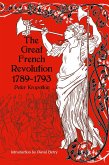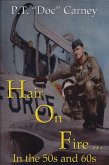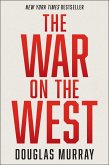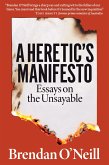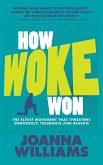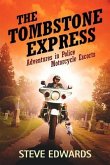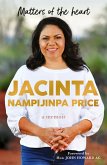In Rebel Without a Clue: Magical Thinking, a Motorcycle Journey, and The Great Teenage Diaspora, the author takes us on a colorful, and unusual journey. This gripping book cleverly addresses the cultural disconnect in America while telling the tale of a motorcycle road trip from the 1970s. It all starts with a kid who bootstrapped his own education out of abject fear of mediocrity, refused his high school diploma on moral grounds, and leapfrogged directly into collegeand then stood toe-to-toe over the Vietnam War with an amoral Uncle Sam. In 1970, Robertson was owlishly staring down five years in federal prison, but he wanted to see the world firstor some part of it anyway. So he took a motorcycle trip with a good friend and traveled the blue and gray ribbons of America carrying little more than a toothbrush, some clean socks, and a nervous grin. Along the way, they met America face-to-face, one campfire chat and roadside diner at a time. The pages are packed with color, action, and humor when he describes popping a frantic wheelie to avoid a herd of bison, how he and his friend landed in a Wisconsin jail, stayed with a family after crashing in Chicago, watched Emerson Fittipaldi win the Formula One race at Watkins Glen, talked their way into Yale University as guests, or how they joined a search party for a missing girl in Connecticut. Through encounters and escapades, they met the soul of a nation. This is more than the story of a road trip; it is about what happens when youth takes wing and pushes through to the other side. Most people have an experience at some point in their lives when they go beyond their normal abilities to achieve something improbable. It's interesting what happens next. Do they learn from it, or just think of it as an exciting part of their history?
Robertson connects the dots between his 9,847 mile journey and sweeping historical trends. Describing seminal events from the Middle Ages to the present and connecting them to lessons he learned on his trip, Robertson's story serves as a unique lens. He makes the connection between justice, education, and social transformation. A thoughtful examination of rural-to-urban migration patterns and their effects on American culture is skillfully woven out of colorful road tales and improbable detours, the ideas that shaped his understanding of the world, and the adventure of a lifetime.
And hey, there is a sequel! The Great American Dream Machine, accessible online for anyone reading Rebel Without a Clue. It synthesizes the big ideas presented in Rebel with enough thought-provoking insight to make your head spinno helmet required. Fasten your seat belt, it's a bumpy ride.
Dieser Download kann aus rechtlichen Gründen nur mit Rechnungsadresse in A, B, CY, CZ, D, DK, EW, E, FIN, F, GR, H, IRL, I, LT, L, LR, M, NL, PL, P, R, S, SLO, SK ausgeliefert werden.



